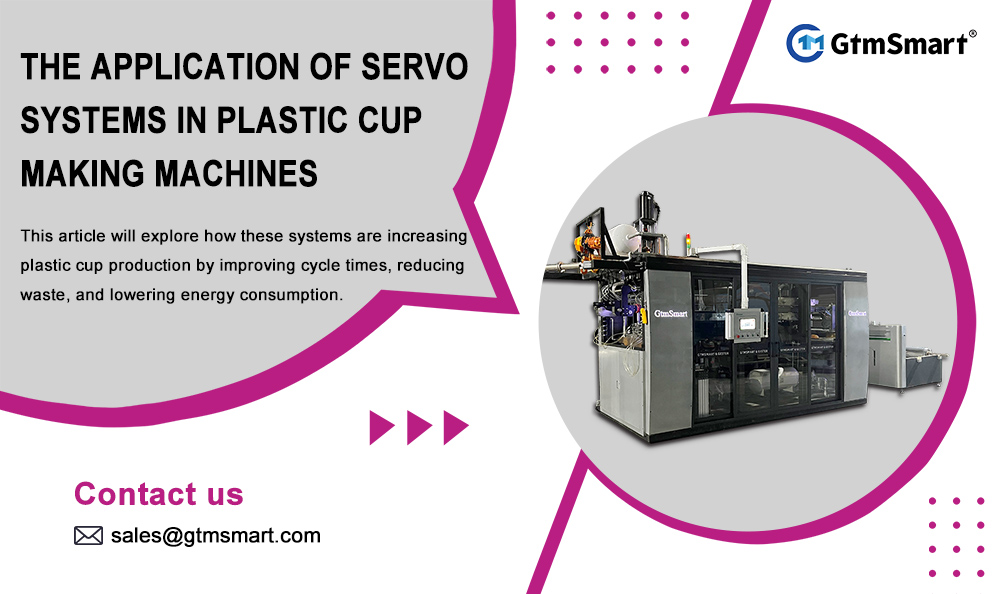Introduction
The integration of servo systems into plastic cup making machines is a key technological advancement that improves the precision and efficiency of manufacturing processes. This article will explore how these systems are increasing plastic cup production by improving cycle times, reducing waste, and lowering energy consumption.
Understanding Servo Systems
A servo system includes a servo motor, a controller, and sensors that ensure precise control over mechanical movement. These components are crucial in settings where exact movements are essential for product quality and consistency.
The Evolution of Plastic Cup Making Machines
Plastic cup thermoforming machines have evolved from simple mechanical devices to complex systems incorporating advanced technologies like servo systems. These systems allow for greater control over the molding process, ensuring consistency and quality in the production of plastic cups.
1. Enhancing Production Efficiency
Servo systems enable cup making machines to operate at faster cycle times by streamlining the process of forming opening and closing. This not only speeds up production but also improves the consistency of the output. Moreover, servo motors provide accurate control, which is critical in achieving uniform cup dimensions and wall thicknesses, thereby reducing material waste and enhancing the quality of the final product.
2. Precision Mold Positioning
One of the standout benefits of servo systems is their ability to precisely position molds, which helps eliminate overflows and defects in the production process. Advanced adaptive control algorithms play a role here, adjusting mold positions in real-time based on immediate feedback. This dynamic adjustment is key to maintaining high-quality production standards.
3. Energy Optimization
Servo systems are more energy-efficient compared to traditional hydraulic counterparts. They significantly reduce power consumption, which not only cuts costs but also minimizes the environmental impact of manufacturing processes. Furthermore, features like regenerative braking in servo motors capture kinetic energy during mold deceleration phases and convert it back into electrical energy, enhancing overall energy efficiency.
4. Overcoming Challenges and Implementation Considerations
Despite their numerous advantages, integrating servo systems into existing manufacturing setups involves a detailed cost-benefit analysis. The initial investment can be substantial, and there’s a need for specialized training for operators and maintenance staff. Companies must weigh these factors against the long-term gains of improved efficiency, reduced energy costs, and higher product quality.
Case Studies and Industry Perspectives
Several manufacturers have reaped substantial benefits from implementing servo technologies in their plastic cup production lines. Case studies highlight significant improvements in production speed, energy efficiency, and product consistency. Industry experts also emphasize the transformative potential of servo systems, predicting they will continue to shape the future of plastic forming with ongoing advancements in servo technology and its applications.
Conclusion
The integration of servo systems in disposable plastic cup making machines signifies a major advancement in manufacturing technology, bringing about a new era characterized by enhanced efficiency, precision, and sustainability. As the industry progresses, the continued adoption and refinement of servo technologies will undoubtedly play a critical role in driving future innovations, ensuring manufacturers can meet the growing demands for high-quality, environmentally friendly products. The transformative impact of these systems extends beyond immediate operational benefits, influencing broader manufacturing practices and standards globally.
Post time: Apr-27-2024

